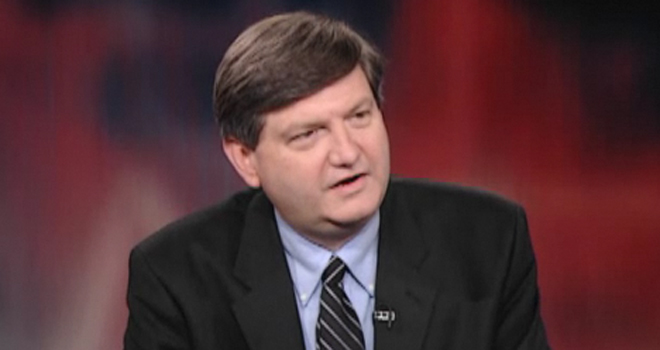After the Justice Department obtained New York Times reporter James Risen’s credit reports and credit card and bank records, it moved this week to subpoena the award-winning journalist’s testimony in the trial of a former CIA agent accused of leaking of classified information.
But a DOJ spokeswoman said Tuesday that the Department takes subpoenaing reporters seriously and they’ll only do it as a last resort.
“In issuing subpoenas to members of the media, the Department seeks to strike the proper balance between the public’s interest in the free dissemination of information and effective law enforcement,” Justice Department spokeswoman Laura Sweeney said in an email.
“The government takes seriously its obligations regarding subpoenas to the media, following all applicable laws, federal regulations and department policies,” Sweeney said. “We make every reasonable effort to attempt to obtain information from alternatives sources before even considering a subpoena to a member of the press, and only seek information essential to directly establishing innocence or guilt.”
Sweeney pointed to a few key points in the government’s filing on Risen’s testimony. It states that Risen’s testimony is directly relevant to facts that are squarely at issue in the trial against former CIA agent Jeffrey Sterling because he “witnessed” the alleged crimes.
The motion claims that Risen could testify about information which would not require revealing the identity of the source, although it’s not clear how Risen could possibly testify about the specific facts cited by DOJ without divuging the identity of his source. He could “establish venue for certain of the charged counts; can authenticate his book and lay the necessary foundation to admit the defendant’s statements in the book; and can identify the defendant as someone with whom he had a source relationship that pre-dated the charged disclosures,” according to the filing.
The government’s filing also claims that Risen could testify about the “specific information that the defendant conveyed to him, much of which was publicly disclosed by Risen in his book,” as well as “his recollection of where and when the specific information was transmitted to him,” “testimony authenticating his book and laying the foundation for admitting the defendant’s statements contained in it,” and “his recollection of his preexisting non-confidential source relationship with Sterling, including his authorship of a newspaper article about Sterling’s civil lawsuit in 2002.”
None of that information, the government maintain, “is covered by any confidentiality agreement between Risen and his source, because none of this testimony would directly reveal the identity of his source.”
Exempting Risen from testifying, federal prosecutors argue, “would mean exempting any reporter from testifying about any matter relating to his or her job – whether confidential or not.”
Risen will fight the subpoena and said he will always protect his sources. He said the fight is “about the First Amendment and the freedom of the press.”









